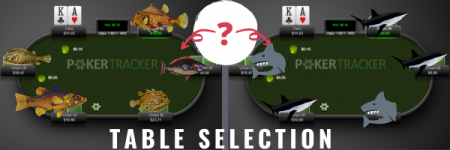Mig32
Rock Star
Platinum Level
We all have that one concept, mistake, or habit that held us back for way too long before it finally clicked.
For some, it was understanding position. For others, it might’ve been bankroll management, tilt control, or knowing when to fold TPTK (Top Pair, Top Kicker). Looking back, what’s the one lesson you wish you had learned earlier in your poker journey?
Let’s share and help others avoid the same delay — beginners and experienced players welcome!
For some, it was understanding position. For others, it might’ve been bankroll management, tilt control, or knowing when to fold TPTK (Top Pair, Top Kicker). Looking back, what’s the one lesson you wish you had learned earlier in your poker journey?
Let’s share and help others avoid the same delay — beginners and experienced players welcome!
















